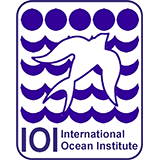General information
The ocean covers more than 70% of the Earth's surface, connecting all corners of the world, and provides the planet with some of the most important and basic economic, cultural, and environmental functions. In many ways, it also remains the last frontier. Humans have a greater understanding of the surface of the moon than they do of the depths of the oceans, hinting at untouched natural resources and unrecognized ecosystem services.
But the ocean is under threat, stressed by careless lifestyles and the increasing demands of a growing global population. Sustainable development hinges on our collective ability to be good stewards of the ocean.
One Planet - One Ocean: From Science to Solutions is a ten-week course presenting the challenges and opportunities facing oceans today. Led by the teams at GEOMAR, the International Ocean Institute, Christian-Albrechts-Universität zu Kiel, and Future Ocean, the course brings in some of the world's leading experts on ocean science to present the issues and potential solutions grounded in rigorous scientific research.
Each weekly module includes video lectures, readings, interactive components and quizzes, and periodic Google Hangouts will be scheduled throughout the course.
Syllabus
Module 1: One Planet – One Ocean
1.1 The OCEAN MOOC
1.2 The Ocean: A finite resource
1.3 Concepts of Sustainability
1.4 Ocean Evolution
1.5 Governing Global Commons
1.6 The Ocean through History
1.7 From Science to Solutions
Module 2: Coasts
2.1 Coastal Systems
2.2 Coastal Hazards
2.3 Threats from the Sea Bed
2.4 Deltas
2.5 Coastal Ecosystems
2.6 Future Coasts
2.7 Coastal Solutions: Ecosystem based Management
Module 3: Marine Ecosystems
3.1 Marine Food Chains
3.2 Ocean Change: A Mix of Interacting Stressors
3.3 Marine Ecosystem Change and Services
3.4 Resilience and Adaptation in the Ocean
3.5 Governing Marine Biodiversity
3.6 Marine Spatial Planning
3.7 Ecosystem and Nutrient Management
3.8 Ecosystem-Based Management
Module 4: Fisheries and Aquaculture
4.1 Our Ocean: A Finite Resource
4.2 Dance of the plankton
4.3 Marine Food Chains
4.4 Fisheries Economics and Management
4.5 Aquaculture and Mariculture
4.6 Sustainable Management of Fisheries
Module 5: Marine Life and Minerals
5.1 Evolution and Marine Diversity
5.2 Life in the Deep Sea
5.3 Resilience and Adaptation in the Ocean
5.4 Non-renewable Ocean Resources: From Exploration to Exploitation?
5.5 Seafloor Resources: Energy and Minerals
Module 6: Ocean and Climate
6.1 Human influence on the Ocean
6.2 Ocean Heat Storage and Sea Level
6.3 The Ocean’s Biological Pump
6.4 Climate Engineering
6.5 Sub-Seafloor CO2 Storage
Integrated Ocean Sciences, and human interactions with the ocean. Ocean Sustainability
Content
The highlighted icons, represent the fields of education (in compliance with ISCED Classification) engaged during this course/programme.
Venue
Your PC, Tablet or Smart Phone, Germany
Application
Click here to apply: http://bit.ly/Oceans17
Cost:
<p>Free of Charge -all you need is an internet connection!</p>
Prerequisites:
A basic scientific knowledge and an enthusiasm for the ocean
Qualification
Assessment:
Online Quizzes
The ocean covers more than 70% of the Earth's surface, connecting all corners of the world, and provides the planet with some of the most important and basic economic, cultural, and environmental functions. In many ways, it also remains the last frontier. Humans have a greater understanding of the surface of the moon than they do of the depths of the oceans, hinting at untouched natural resources and unrecognized ecosystem services.
But the ocean is under threat, stressed by careless lifestyles and the increasing demands of a growing global population. Sustainable development hinges on our collective ability to be good stewards of the ocean.
One Planet - One Ocean: From Science to Solutions is a ten-week course presenting the challenges and opportunities facing oceans today. Led by the teams at GEOMAR, the International Ocean Institute, Christian-Albrechts-Universität zu Kiel, and Future Ocean, the course brings in some of the world's leading experts on ocean science to present the issues and potential solutions grounded in rigorous scientific research.
Each weekly module includes video lectures, readings, interactive components and quizzes, and periodic Google Hangouts will be scheduled throughout the course.
Syllabus
Module 1: One Planet – One Ocean
1.1 The OCEAN MOOC
1.2 The Ocean: A finite resource
1.3 Concepts of Sustainability
1.4 Ocean Evolution
1.5 Governing Global Commons
1.6 The Ocean through History
1.7 From Science to Solutions
Module 2: Coasts
2.1 Coastal Systems
2.2 Coastal Hazards
2.3 Threats from the Sea Bed
2.4 Deltas
2.5 Coastal Ecosystems
2.6 Future Coasts
2.7 Coastal Solutions: Ecosystem based Management
Module 3: Marine Ecosystems
3.1 Marine Food Chains
3.2 Ocean Change: A Mix of Interacting Stressors
3.3 Marine Ecosystem Change and Services
3.4 Resilience and Adaptation in the Ocean
3.5 Governing Marine Biodiversity
3.6 Marine Spatial Planning
3.7 Ecosystem and Nutrient Management
3.8 Ecosystem-Based Management
Module 4: Fisheries and Aquaculture
4.1 Our Ocean: A Finite Resource
4.2 Dance of the plankton
4.3 Marine Food Chains
4.4 Fisheries Economics and Management
4.5 Aquaculture and Mariculture
4.6 Sustainable Management of Fisheries
Module 5: Marine Life and Minerals
5.1 Evolution and Marine Diversity
5.2 Life in the Deep Sea
5.3 Resilience and Adaptation in the Ocean
5.4 Non-renewable Ocean Resources: From Exploration to Exploitation?
5.5 Seafloor Resources: Energy and Minerals
Module 6: Ocean and Climate
6.1 Human influence on the Ocean
6.2 Ocean Heat Storage and Sea Level
6.3 The Ocean’s Biological Pump
6.4 Climate Engineering
6.5 Sub-Seafloor CO2 Storage
Online Quizzes
Integrated Ocean Sciences, and human interactions with the ocean. Ocean Sustainability
A basic scientific knowledge and an enthusiasm for the ocean

 GEOMAR Helmholtz Centre for Ocean Research Kiel
GEOMAR Helmholtz Centre for Ocean Research Kiel International ocean institute (IOI)
International ocean institute (IOI)

